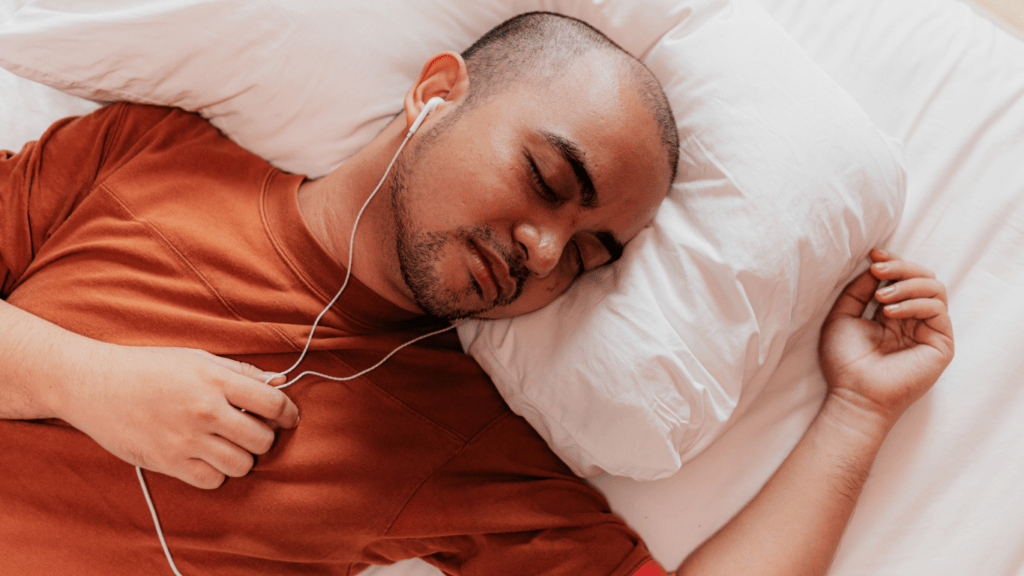Are you tired of counting sheep? As someone who values a good night’s sleep, I’ve delved into the latest advancements in sleep therapy to enhance our overall well-being. Sleep plays a crucial role in our physical and mental health, affecting everything from our mood to our productivity.
That’s why staying informed about innovative sleep treatments is key to achieving optimal health. In this article, I’ll explore cutting-edge sleep therapies that are revolutionizing the way we approach sleep disorders and insomnia.
From technology-driven solutions to holistic approaches, the field of sleep therapy is constantly evolving to help us achieve better sleep and, ultimately, a better quality of life. Join me on this journey to uncover the latest trends in sleep therapy and discover how they can transform your sleep habits for the better.
Understanding the Significance of Quality Sleep
Quality sleep is essential for overall well-being as it directly impacts both physical and mental health. As someone who values a healthy lifestyle, I recognize the significance of ensuring adequate and restful sleep each night.
Lack of quality sleep can lead to a myriad of health issues, including increased stress levels, impaired cognitive function, and a weakened immune system. It’s crucial to prioritize quality sleep to maintain optimal performance and function throughout the day.
By understanding the importance of quality sleep, individuals can make informed decisions to improve their sleep hygiene and establish healthy bedtime routines. Taking steps to enhance the quality of sleep can result in better concentration, improved mood, and enhanced overall health.
Various Types of Sleep Disorders
Discussing various types of sleep disorders is crucial to understanding the wide range of issues individuals may face when trying to get a good night’s sleep. Here, I’ll delve into some common sleep disorders that can significantly impact one’s overall well-being.
- Insomnia: Insomnia is a prevalent sleep disorder characterized by difficulty falling asleep or staying asleep. It can lead to daytime fatigue, irritability, and decreased focus. Individuals with insomnia often struggle to get the recommended amount of sleep, affecting their daily productivity and quality of life.
- Sleep Apnea: Sleep apnea is a serious condition where a person’s breathing is interrupted during sleep. This pause in breathing can happen multiple times throughout the night, leading to fragmented sleep and reduced oxygen levels in the body. Sleep apnea is associated with various health risks, including high blood pressure, heart disease, and stroke.
- Restless Leg Syndrome (RLS): Restless Leg Syndrome is a neurological disorder characterized by an uncontrollable urge to move one’s legs, especially when at rest. This can disrupt sleep patterns, making it challenging to relax and fall asleep. RLS can cause discomfort and aching sensations in the legs, impacting the quality of sleep and overall well-being.
- Narcolepsy: Narcolepsy is a chronic neurological disorder that affects the brain’s ability to regulate sleep-wake cycles. Individuals with narcolepsy may experience excessive daytime sleepiness, sudden loss of muscle tone (cataplexy), hallucinations, and sleep paralysis. These symptoms can significantly impact daily activities and overall quality of life.
- Shift Work Sleep Disorder: Shift Work Sleep Disorder is a circadian rhythm sleep disorder that commonly affects individuals who work non-traditional hours, such as night shifts or early morning shifts. The disruption to the body’s natural sleep-wake cycle can lead to excessive sleepiness, insomnia, and difficulty concentrating. Shift workers may struggle to get adequate rest, impacting their well-being and performance.
Understanding these different types of sleep disorders is essential for identifying potential issues and seeking appropriate treatment. By recognizing the symptoms and effects of these sleep disorders, individuals can take proactive steps to improve their sleep habits and overall quality of life.
Innovations in Sleep Therapy
I dive into some key advancements shaping sleep therapy for enhanced well-being. Let’s explore these innovations in depth:
Cognitive Behavioral Therapy for Insomnia (CBT-I)
I present Cognitive Behavioral Therapy for Insomnia (CBT-I), a proven technique aiding individuals struggling with sleeplessness. CBT-I helps reframe negative thoughts and behaviors related to sleep, promoting relaxation and better sleep patterns over time.
Light Therapy for Circadian Rhythm Regulation
I detail Light Therapy, a cutting-edge approach to regulating circadian rhythms. By exposing individuals to specific types of light, this therapy helps reset internal body clocks, aiding in the synchronization of sleep-wake cycles for improved overall sleep quality.
Importance of Technology in Sleep Monitoring and Improvement
Incorporating technology into sleep monitoring and improvement strategies has revolutionized the way we understand and address sleep-related issues. Utilizing innovative tools and devices can provide valuable insights into our sleep patterns, leading to enhanced well-being and overall health.
- Monitoring Devices: Tracking my sleep habits using wearable devices like smartwatches or fitness trackers allows me to analyze data on my sleep duration, quality, and disruptions. By having access to this information, I empower myself to make informed decisions about my sleep hygiene and routines.
- Smart Sleep Apps: Exploring smartphone applications designed for monitoring and improving sleep quality has been a game-changer for me. These apps offer features like sleep tracking, soothing sounds, relaxation techniques, and sleep diaries, enabling me to actively participate in enhancing my sleep experience.
- Sleep Technology Integration: Integrating technology into my bedroom environment, such as smart lighting systems, white noise machines, or adjustable beds, has significantly contributed to creating a more conducive atmosphere for restful sleep. These tech-driven solutions help optimize my sleeping environment for better relaxation and sleep quality.
- Remote Sleep Monitoring: The ability to undergo sleep monitoring remotely, through telemedicine or virtual consultations with sleep specialists, offers convenience and accessibility in seeking professional guidance for addressing sleep disorders. This virtual approach enhances the efficiency of diagnosis and treatment, ultimately improving my sleep outcomes.
By leveraging technology in sleep monitoring and improvement, I have gained a deeper understanding of my sleep patterns and implemented personalized strategies to enhance my overall well-being. Integrating these technological advances into my daily routine has been instrumental in achieving better sleep quality and optimizing my health.
Future Directions in Sleep Therapy Research
Exploring the frontier of sleep therapy research reveals promising avenues that hold the potential to significantly enhance treatment outcomes for sleep disorders. Researchers are actively investigating novel interventions and technologies aimed at revolutionizing the field of sleep therapy.
One of the exciting areas of focus in future sleep therapy research is the development of personalized treatment approaches tailored to individuals’ specific sleep patterns, preferences, and physiological characteristics.
By leveraging advancements in genetic testing and bioinformatics, scientists are striving to create customized sleep interventions that address the unique needs of each patient efficiently. Another promising direction in sleep therapy research involves the exploration of non-pharmacological interventions, such as mindfulness-based techniques and behavioral therapies, to complement traditional treatment modalities.
Incorporating holistic approaches that target the mind-body connection shows great promise in improving sleep quality and addressing underlying psychological factors contributing to sleep disturbances. Furthermore, researchers are actively investigating the potential of neurofeedback and brain stimulation techniques in enhancing sleep architecture and promoting deep, restorative sleep.
By harnessing the power of neuroplasticity, these innovative technologies aim to modulate brain activity patterns associated with sleep disorders, offering new avenues for targeted and effective therapeutic interventions. In addition to individualized treatments, future research efforts are focused on developing comprehensive sleep management strategies that integrate cognitive, behavioral, and lifestyle interventions.
By adopting a multifaceted approach that considers the interconnected nature of sleep health, researchers aim to optimize treatment outcomes and promote sustained improvements in sleep quality and overall well-being. Overall, the future of sleep therapy research is characterized by a commitment to innovation, personalized care, and holistic approaches that aim to redefine the standards of care for individuals struggling with sleep disorders.
Embracing these emerging trends and advancements in the field holds the promise of a brighter, more well-rested future for individuals seeking to enhance their sleep quality and overall health.



 Wellness Coach
Jake Beet is a certified wellness coach at Aura Nature Spark, specializing in personalized nutrition and fitness plans. With a background in exercise science, Jake is dedicated to helping individuals achieve their health goals through tailored programs that emphasize balance and sustainability. His engaging and supportive approach empowers clients to make positive lifestyle changes that last. Jake believes that wellness is a journey, and he is passionate about guiding others toward a happier and healthier future.
Wellness Coach
Jake Beet is a certified wellness coach at Aura Nature Spark, specializing in personalized nutrition and fitness plans. With a background in exercise science, Jake is dedicated to helping individuals achieve their health goals through tailored programs that emphasize balance and sustainability. His engaging and supportive approach empowers clients to make positive lifestyle changes that last. Jake believes that wellness is a journey, and he is passionate about guiding others toward a happier and healthier future.
